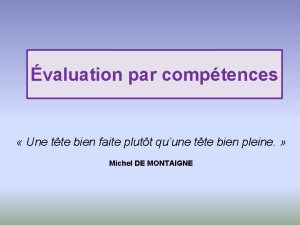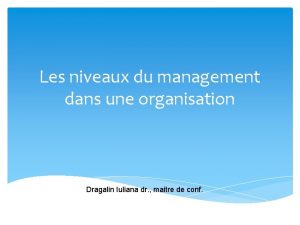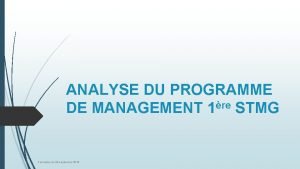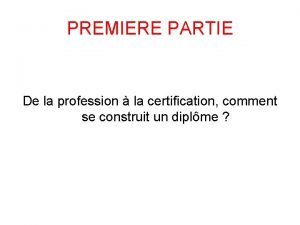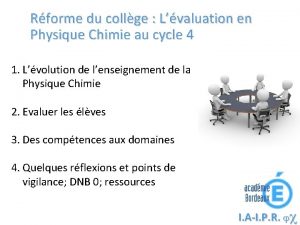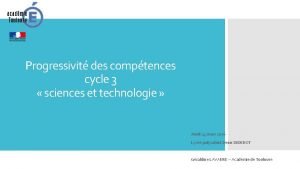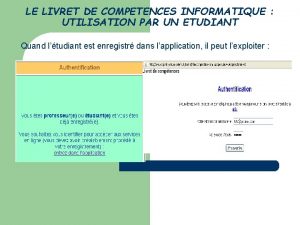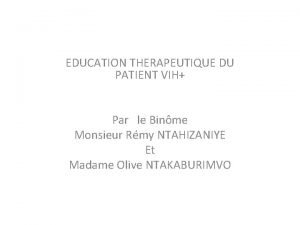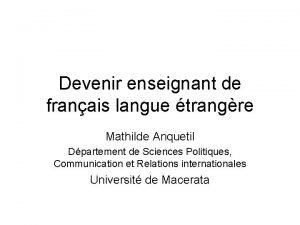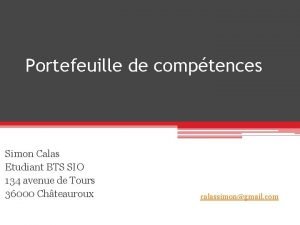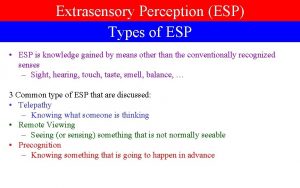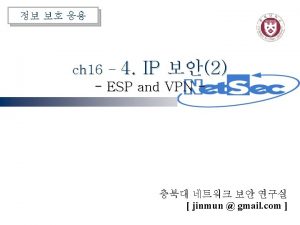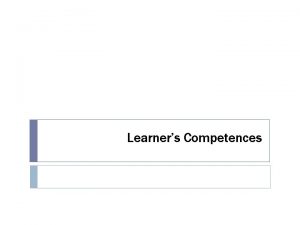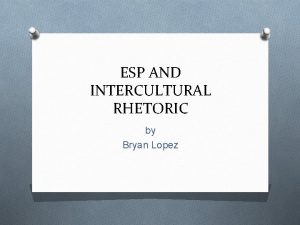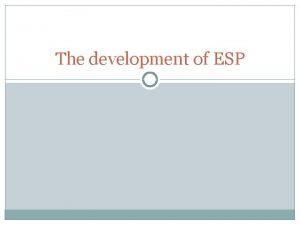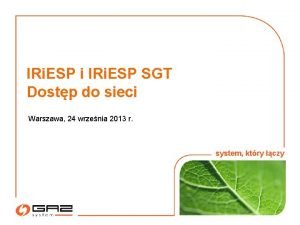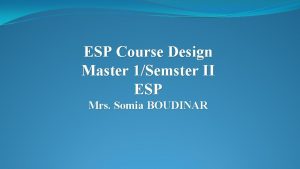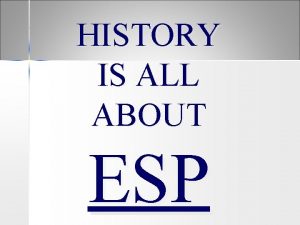Principles of ESP REVIEW OF THE ESP COMPETENCES












- Slides: 12

Principles of ESP - REVIEW OF THE ESP COMPETENCES - THE FIVE MAIN PRINCIPLES OF ESP

Quiz Read the questions in the following slides then choose the right answers!

What should an ESP teacher be able to do ? 1/ a- Teach special English words and texts b- Teach English for learners having specific language needs) 2/ a- Use ready-made ESP course books b- Design ESP curricula and/or provide ESP teaching materials 3/ a- Assess ESP learners’ levels and progress b- Evaluate current ESP courses and learners

What should an ESP teacher be able to do ? 4/ a- Use ready-made grammar books and text books b-Do researches about ESP registers, discourses, texts and needs 5/ a-Develop wide knowedge of the target discipline/ profession b- Solve the lack of disciplinary/ professional knowedge through close collaboration with content teachers / professionals.

ESP teachers’ competences A true ESP teacher (practitioner) is supposed to be: 1 - A teacher Teach English for learners having specific language needs (co-learner) 2 - A curriculum Design ESP curricula, and designer and Provide (produce/select) ESP materials provider 3 - An evaluater Evaluate current ESP courses and learners 4 - A researcher Do researches about ESP registers, discourses and texts Solve his/her lack of special knowedge of the field (discipline/profession) through close 5 - A collaborator

Principles of ESP Swales (1985): Five main “enduring conceptions” Methodology: Learnercentredness, Coopertaive learning, problemsolving, CLT, TBL, project work Needs: target needs Present needs, deficiency needs strategic needs, learner needs Authenticity: texts (unsimplifie d/ genuine), task, purpose Research base: Lexicogrammatical features of discipline and professions Text/discourse: coherence, cohesion, text patterns, turn taking, topic change

Principles of ESP �Authencity �Authenticity of text (West, 1995): In early 1960’s: texts (written) had to be original, not simplified. In the 1970’s, oral texts were included (dialogues, conversations) �Authenticity of task (Hutchinson and. Waters, 1987) : professional academic tasks and activities �Authenticity purpose (Dudley-Evans and St John, 1998): Learners’ level determine text and task needs

Principles of ESP Research base: For Halliday, (1964), there is a need: for a research base for ESP lexico-grammatical features of registers register analysis Swales J. (1991) defines this principle as “a trend towards papers that rely on some kind of data-base”. This principle has regained importance with corpus analyses of disciplinary and professional texts

Principles of ESP Text/discourse: �Shift of focus from sentence level analysis to discourse/ text level analysis (beyond sentence) Priority is given here to the communicative principles of discourse, According to Allen and Widdowson (1974): coherence, cohesion, Dudley-Evans and St John (1998): text patterns, turn taking, topic change �Genre analysis (swales: 1985): attempts to discover the regular structural features of texts.

Principles of ESP Needs (analysis) �arget needs: linguistic forms used in the target professional/ academic environments �Present needs: learners’ language development at the beginning of a language course �Deficiency needs: takes into accound present needs and target needs. �Learning/learner needs: what learners need to do in order to learn a language �Strategic needs: how the learners wish to learn (styles and strategies) �Means analysis educational environment in which the ESP course is to take place (Swales: 1989).

Principles of ESP Teaching methodology �In, EGP methodological decisions are taken by of general political objectives (how do we want the citizen to be like). �ESP is not restricted to any specific methodology. All decisions are made on the basis of the learners’/learner’s needs �Most modern ELT methods have been developed by ESP practioners. �Learner-centredness, Coopertaive learning, problemsolving, CLT, TBL, project work

Principles of ESP �Instead of conducting interviews with specialists in the field, analyzing the language that is required in the profession, or conducting students' needs analysis, �many ESP teachers have become slaves of the published textbooks, �and are unwilling To do the necessary analysis of difficult specialist texts to verify their contents.
 Modèle de grille d'évaluation des compétences
Modèle de grille d'évaluation des compétences Compétences conceptuelles du manager
Compétences conceptuelles du manager Fiche de processus rh
Fiche de processus rh Compétences vivre ensemble cycle 1
Compétences vivre ensemble cycle 1 Compétences distinctives stmg
Compétences distinctives stmg Référentiel compétences tisf
Référentiel compétences tisf Physique chimie
Physique chimie Compétences technologie cycle 3
Compétences technologie cycle 3 Compétences livret informatique
Compétences livret informatique Compétences d'adaptation éducation thérapeutique
Compétences d'adaptation éducation thérapeutique 8 key competences youthpass
8 key competences youthpass Référentiel de compétences enseignant pdf
Référentiel de compétences enseignant pdf Portefeuille de compétences bts sio
Portefeuille de compétences bts sio
